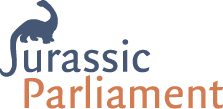4 Bad Habits to Avoid at School Board Meetings

By Ann Macfarlane, Professional Registered Parliamentarian

There are a number of “urban myths” about Robert’s Rules of Order that can get in the way of democratic process for your school board. If your body avoids these bad habits, congratulations! If these errors happen at your meetings, however, you might want to bring them to the attention of your colleagues to straighten them out – in a pleasant way, of course!
1. Misuse of “call the question.”
Many people believe that if a member says “I call the question,” discussion on the motion being considered must stop immediately. This is a widespread and very unfortunate misunderstanding. If you say, “I call the question,” it just means that you – as a single individual – would like to stop debate and vote now. The chair must ask for a second and then take the vote by show of hands, because two-thirds of the members must agree for debate to stop. The reason is that stopping debate limits members’ rights, and in general, a two-thirds vote is needed when members’ rights are limited or extended. While it may seem odd to “vote on whether to vote,” with time, your group will get used to this and use it properly.
2. Misuse of “friendly amendment.”
If a motion has been made, seconded, and stated by the chair, it is open to discussion, debate, and amendment by the members. One common mistake occurs when a member says, “May I offer a friendly amendment?” The chair sometimes then turns to the maker and the seconder to ask if they will accept this amendment. To do this denies the basic fact that a motion belongs to all the body, not just to the one who proposed it. It gives the maker a special “proprietary” right in her motion which, in fact, she doesn’t have. Instead, the chair can say, “A friendly amendment is handled just like any other amendment – is there a second?” The group then proceeds with its discussion and votes on the amendment in the usual way.
3. Abuse of power by the chair.
The chair of a meeting is charged with ensuring a fair process and following the procedures that the group has adopted. He is not responsible for the decision that the group makes. It is the group itself that has that authority. Sometimes chairs are over-assertive in running a meeting. They refuse to recognize a legitimate motion, or to acknowledge a “point of order.” The members should know how to bring them in line by using “appeal.” When running a meeting, the chair or presider is the servant of the group, and the group is the final authority.
4. Allowing a few members to dominate the conversation.
In school board meetings, it can happen that a few members get most of the air time. This is a bad habit that weakens the effectiveness of the group’s discussion. The remedy is that sterling rule, “No one may speak a second time until everyone who wishes to do so has spoken once.” Whether the chair keeps track of who has spoken, maintaining a little list for future speakers, or whether you use the “round robin” method of discussion, following this rule will ensure a democratic process and lessen your chances of “groupthink.”
Any thoughts on these bad habits? Any other “urban myths” to share? We welcome your comments! Email Ann
# # #
The views expressed here are the writer’s and are not necessarily endorsed by the Association of Alaska School Boards. AASB welcomes diverse perspectives and civil discourse. To submit a Guest Column for consideration, see our Guest Column Guidelines and email your 400-1000 word submission HERE.
